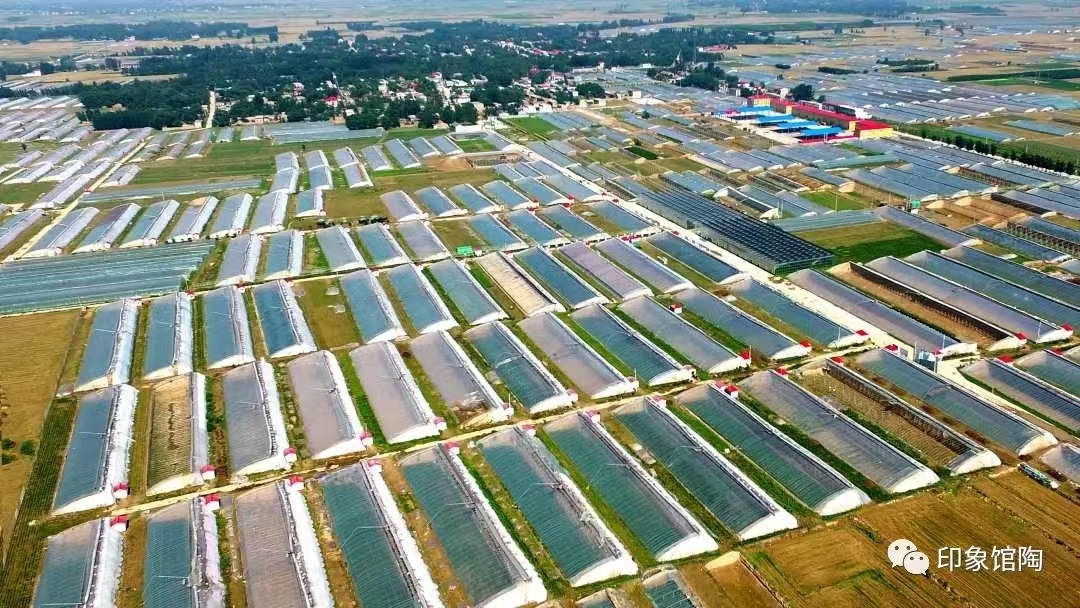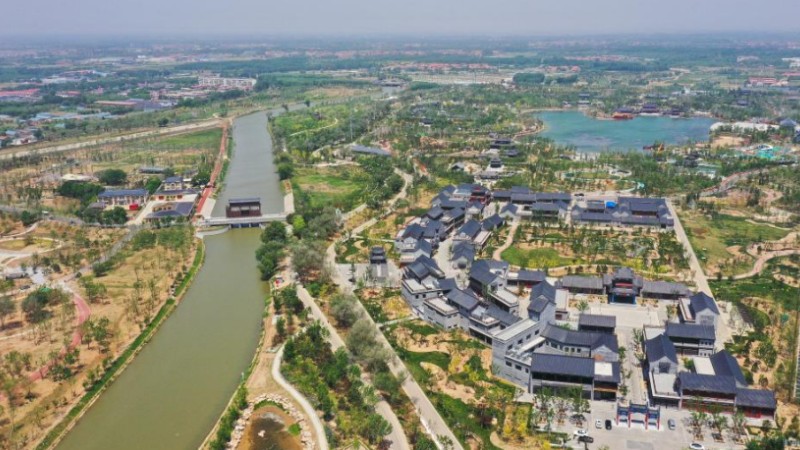Chinese regions turn local specialties into prosperous industries
Regions across China have turned local specialties into big industries based on local conditions.
Anda city in northeast China's Heilongjiang Province, located in a world-renowned area for raising dairy cows, has a history of producing hand-made cheeses for more than 100 years.
By relying on local resource advantages, the city has developed over 30 modern large-scale pastures and nurtured several leading enterprises of agricultural industrialization, creating a hub of cheeses in China.
Heilongjiang Anda Industrial Group Co., Ltd. has boosted the market competitiveness of its cheeses. They account for over 80 percent of the market in physical stores in the city. The company has developed a series of new cheese products to meet consumers' diversified needs and strengthen branding.
Like Anda city, other regions in the country have developed high-quality local specialties with a great reputation. The number of green food, organic food and agricultural products with geographical indications (GIs) in China has exceeded 67,000. This year, the Ministry of Agriculture and Rural Affairs (MARA) will launch a campaign to upgrade key rural industries.
The ministry announced in March that 199 townships and 306 villages in China developed specialty industries worth more than 1 billion yuan ($142 million) and 100 million yuan, respectively, in 2022.
Chinese regions need to rely on specialty industries, develop a variety of agricultural functions, tap multiple types of value in rural areas, and promote the integrated development of primary, secondary, and tertiary industries, according to an official with the MARA.

Photo shows cucumber greenhouses in Zhaizhuang village in Guantao county, north China's Hebei Province. (Photo/Hao Licui)
Zhaizhuang village in Guantao county, north China's Hebei Province, boasts of planting cucumbers for more than 30 years.
"Cucumbers have become the most famous calling card of our village," said Wang Weiling, an official of the village.
Guantao cucumber has become a national GI product, helping local cucumber growers earn an extra more than 20 million yuan each year.
"Cucumbers are very suitable for planting in our county because of a significant temperature difference between day and night, and local soil conditions," said Zhang Dapeng, an official in Guantao county. Zhang added that the county chooses varieties developed by a research institute in north China's Tianjin Municipality, guaranteeing the high quality of cucumbers. By collaborating with the research institute, the contributions of scientific and technological progress to the county's cucumber industry surpassed 70 percent.
The planting area of cucumbers in Guantao remains steady at around 100,000 mu (6,667 hectares). The total output value of the county's cucumber industry exceeded 1.6 billion yuan in 2022.
Zhaizhuang village has extended the cucumber industrial chain. A large cucumber processing plant in the village produces over 300 tonnes of pickled cucumbers each year. In collaboration with Tianjin Shengao Cosmetic Co., Ltd., the village established a skin beauty center to raise the added value of cucumber products. It also built a cucumber-themed museum, attracting many tourists.
"Our village has vigorously promoted the integrated development of agriculture with tourism, including cucumber processing, picking and sightseeing," said Wang.
To successfully develop specialty industries, regions need to tap deep into the market, extend the industry chain, and upgrade the value chain, said Cheng Yu, deputy head of the Research Department of Rural Economy of the Development Research Center of the State Council.
Cheng suggested formulating production standards of local specialties and enhancing brand building to improve their competitiveness.
In Yurong village, Huishan district, Wuxi city, east China's Jiangsu Province, Shen Jingjuan, a college graduate, returned home to make local New Year rice cakes with traditional techniques in 2015.
From a small family workshop to a modern plant covering 2,000 square meters, Shen has developed over 20 new flavors for rice cakes to satisfy the tastes of customers from different age groups, and has worked with chain catering brands to develop dishes related to rice cakes.
Yang Xiaoxia, deputy head of the commerce bureau of Huishan district, said the district is further promoting the standardized production of local rice cakes.
With the support of Huishan district, Shen established a studio to encourage more people to inherit and carry forward traditional techniques in rural areas and better develop specialty industries.
Photos
Related Stories
- China's home appliance industry maintains steady growth
- China's light industry registers steady expansion in 2022
- China accelerates modernization of industrial system
- Pukou Economic Development Zone in east China makes efforts in integrated circuit industry
- Integrated circuit industry sees rapid growth in east China's Nanjing
Copyright © 2023 People's Daily Online. All Rights Reserved.









